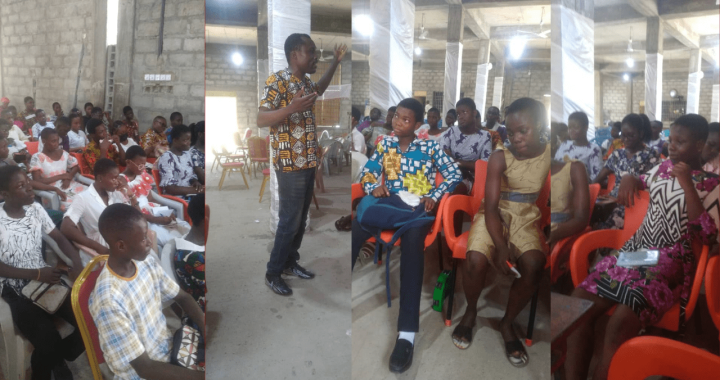Nigerian Students in Ghana Plead for Extension of school Fee Deadlines.

Nigerian students in Ghana are appealing to the management of tertiary institutions across the country to extend the deadline for the payment of school fees.
Nigerians students in Ghana seek extension of school fee deadlines.
READ ALSO: Check Out GES Message To Teachers.
The National Association of Nigerian Students (NANS), Ghana Chapter is making this plead due to concerns related to the fluctuating exchange rate between the Ghanaian cedi and the Nigerian naira, resulting in escalating school fees.
The President of NASN, Sam Edem, highlighted the challenges faced by Nigerian students in Ghana during a recent media interview. He expressed his understanding that Nigerian government is actively working to address the currency exchange issue with naira. Still, he urged Ghanaian tertiary institutions to consider their plea and provide a grace period for fee payment.
Edem emphasized that the important of accommodating Nigerian students during this challenging time, “So while I am putting out word to our government back home, we would appreciate it if a lot more is done about this issue.
We appeal to our institutions here to give the Nigerian students that allowance for the period to ensure that they are able to meet their obligations with regard to fees.
READ ALSO: Why brilliant students fail examination and what you can do to avoid failure
According to Lamido Sanusi, the former Governor of Nigeria’s Central Bank, who spoke during a public lecture in 2022, there are over 70,000 Nigerian students pursuing their education in Ghana.
The Governor of Nigerian Central Bank revealed that although there is no comprehensive data on exact number of Nigerian students studying abroad, recent estimates indicate that approximately 71,000 Nigerian students contribute approximately 1 billion US Dollar annually towards tuition fees and living expenses.
Governor of Nigeria’s Central Bank also stated further that, “In order words, the money spent by Nigerian students in Ghana with a better-organizer system is more than the annual budget of all federal university in the country.”
Send Stories | Social Media | Disclaimer
Send Stories and Articles for publication to [email protected]
We Are Active On Social Media
WhatsApp Channel: JOIN HERE
2024 BECE and WASSCE Channel - JOIN HERE
Facebook: JOIN HERE
Telegram: JOIN HERE
Twitter: FOLLOW US HERE
Instagram: FOLLOW US HERE
Disclaimer:
The information contained in this post on Ghana Education News is for general information purposes only. While we endeavour to keep the information up to date and correct, we make no representations or warranties of any kind, express or implied, about the completeness, accuracy, reliability, suitability or availability with respect to the website or the information, products, services, or related graphics contained on the post for any purpose.



 List of WAEC Offices and Contacts Across Ghana
List of WAEC Offices and Contacts Across Ghana  La District Junior Youth 2024 BECE Mock: Ghana Education News partners the Presbyterian Church
La District Junior Youth 2024 BECE Mock: Ghana Education News partners the Presbyterian Church  WAEC Releases 2024 WASSCE Timetable (waecgh.org)
WAEC Releases 2024 WASSCE Timetable (waecgh.org)  Odomase sub chief donates US$2,000 worth computers to alma mater
Odomase sub chief donates US$2,000 worth computers to alma mater  Otumfuo Osei Tutu II Foundation collaborates with Newmont Ghana to build Artificial Intelligence Center at Kona
Otumfuo Osei Tutu II Foundation collaborates with Newmont Ghana to build Artificial Intelligence Center at Kona  Esther Cobbah elected President of Institute of Public Relations, Ghana
Esther Cobbah elected President of Institute of Public Relations, Ghana  GES grants SHS students break for voter registration
GES grants SHS students break for voter registration